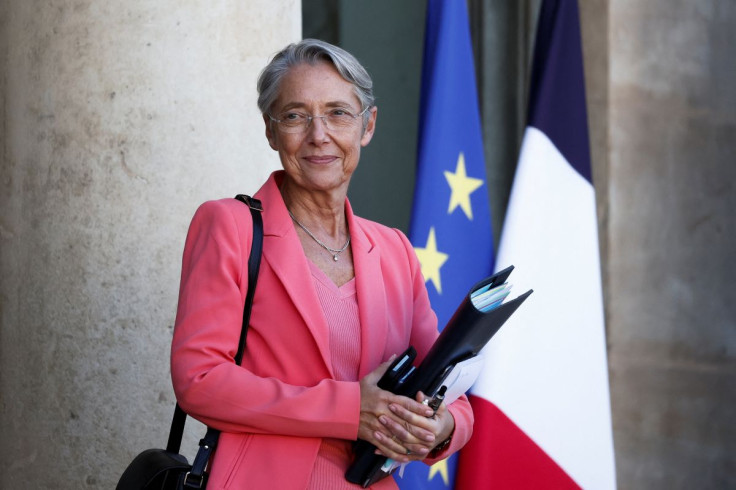French PM Gives Policy Speech, Opposition Flexes Its Muscles

French Prime Minister Elisabeth Borne will set out her minority government's priorities on Wednesday and spell out how she will try to navigate a new era of political uncertainty and work with a fragmented parliament.
President Emmanuel Macron won a second mandate in April but saw his centrist alliance lose its absolute majority in June.
For the first time for a new cabinet in 30 years, the government itself decided not to call a vote of confidence after the policy speech, wary of the risk of seeing the one appointed on Monday defeated, which would have forced it to resign.
Without any pact with other parties, it now faces the prospect of bill-by-bill negotiations in parliament.
In her 3 p.m. (1300 GMT) policy speech in the lower house of parliament, Borne is expected to say how she intends to work with parliament and spell out upcoming proposals on the cost of living or France's energy mix.
It is also an opportunity for the 61-year-old former civil servant, often criticised as being too technocratic, to make her mark.
A vote of no-confidence, proposed by left-wing parties, will follow in the coming days. Although it is set to fail, it will be an opportunity for opposition parties to flex their muscles and test different strategies.
Macron's Ensemble alliance, though it is the biggest group in parliament, no longer has an absolute majority.
Government officials said they believed they could have won a confidence vote by a short margin. But that would have meant counting on the far-right - even if only by it abstaining - which would have been politically unpalatable.
"We could imagine the headlines: the government won thanks to the National Rally. We don't want to fall into this trap," a government source said.
A vote of no-confidence is much less risky for Borne, as it requires more votes to go through, which, barring a major surprise, will not happen, after the conservative Les Republicains (LR) and Marine Le Pen's National Rally said they would not back it.
For the left, it is a way to try and appear as the toughest opponent. The right and the far-right vie for the label of constructive, responsible opposition. And all bear in mind that repeat elections could happen some time down the line.
"It will clarify the political landscape and show who is in the majority and who is in the opposition," LFI lawmaker Manuel Bompard told France Inter radio.
Those who do not back the no-confidence vote will be responsible for keeping the Borne government in power, he said.
LR lawmaker Aurelien Pradie responded on Franceinfo TV saying: "We're not a fruitless, stupid and nasty opposition, unlike others."
© Copyright Thomson Reuters 2024. All rights reserved.




















